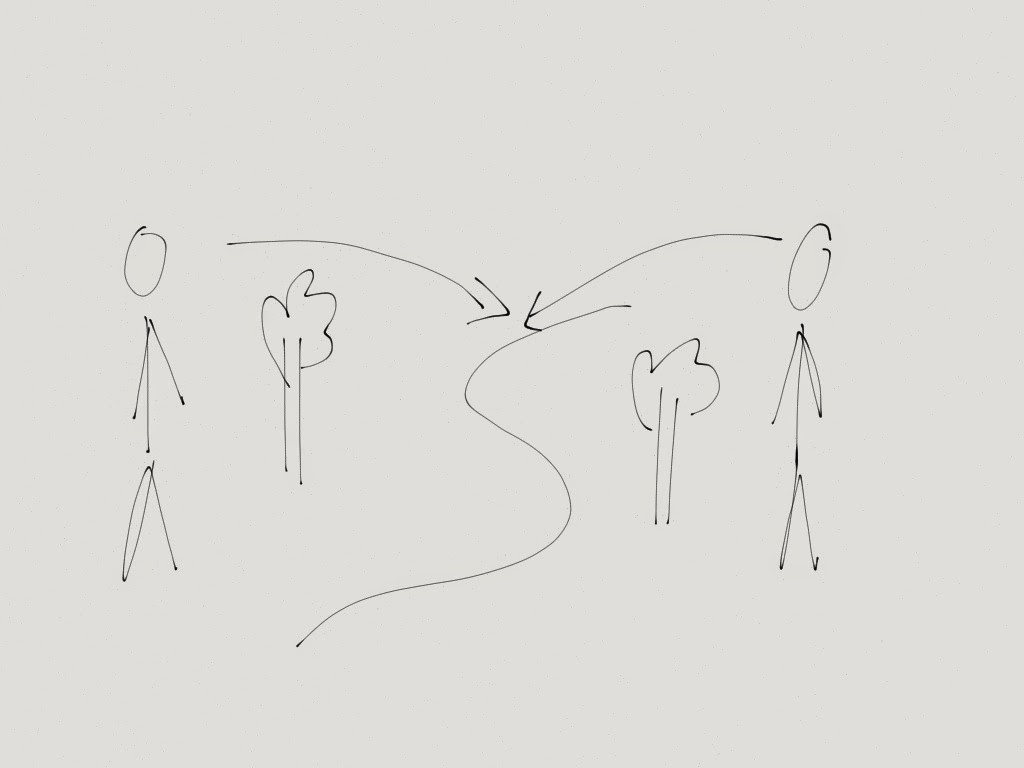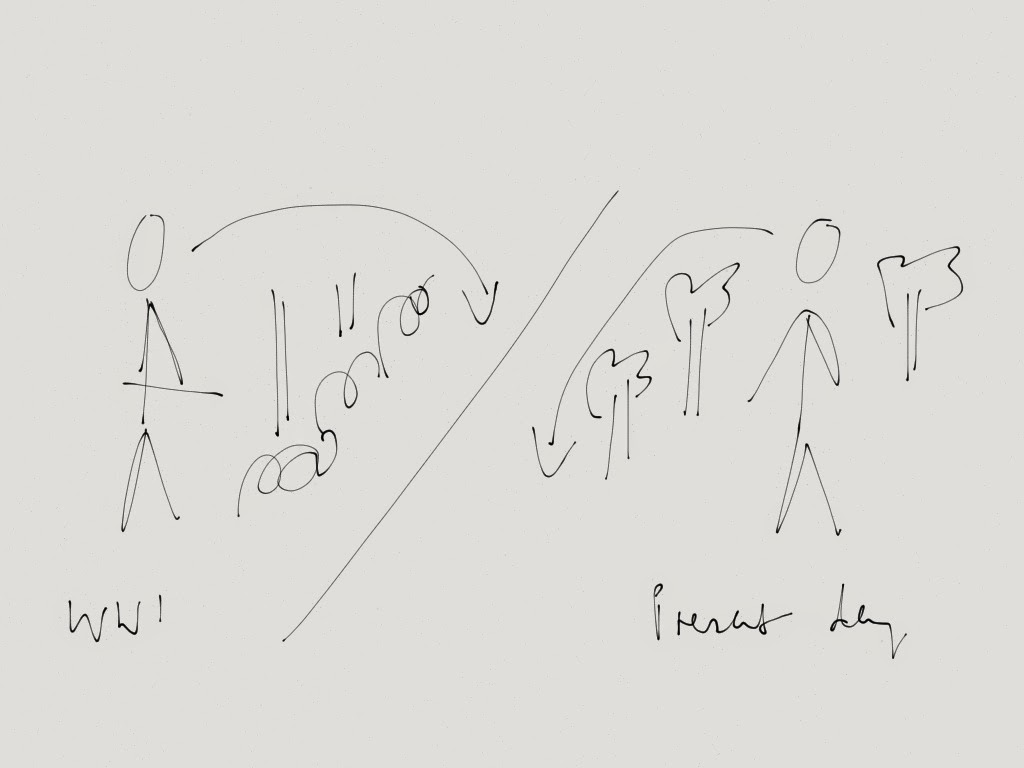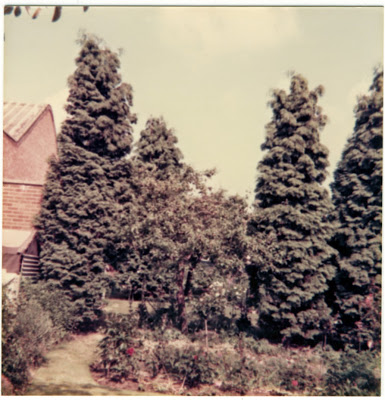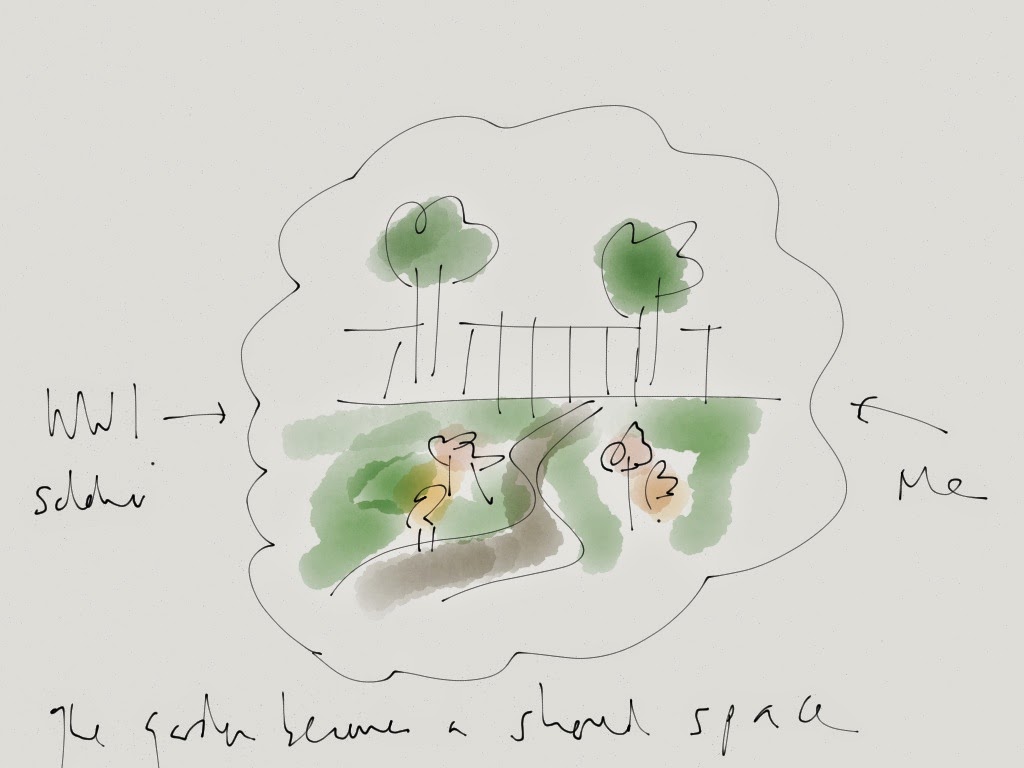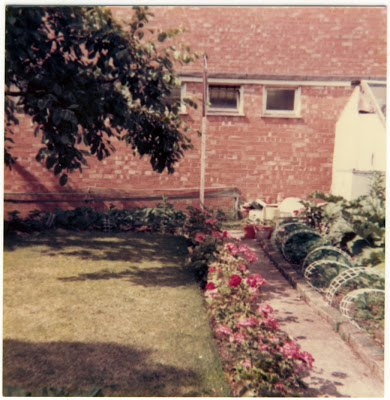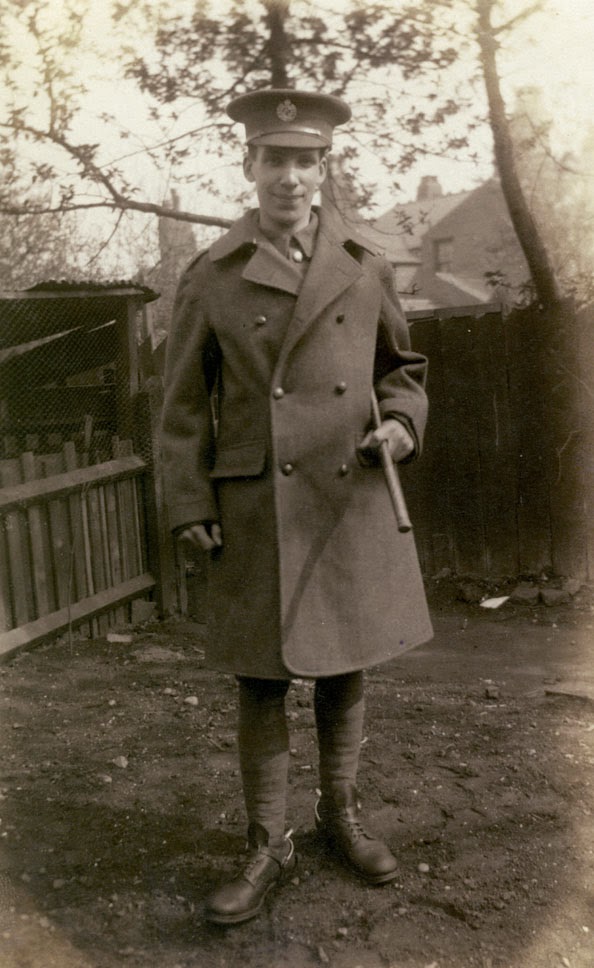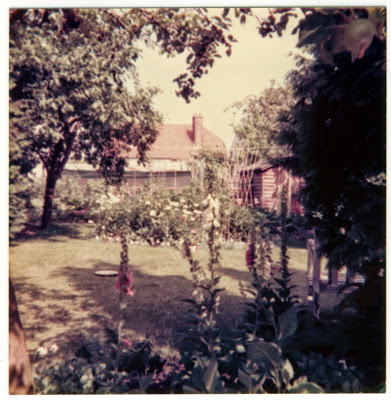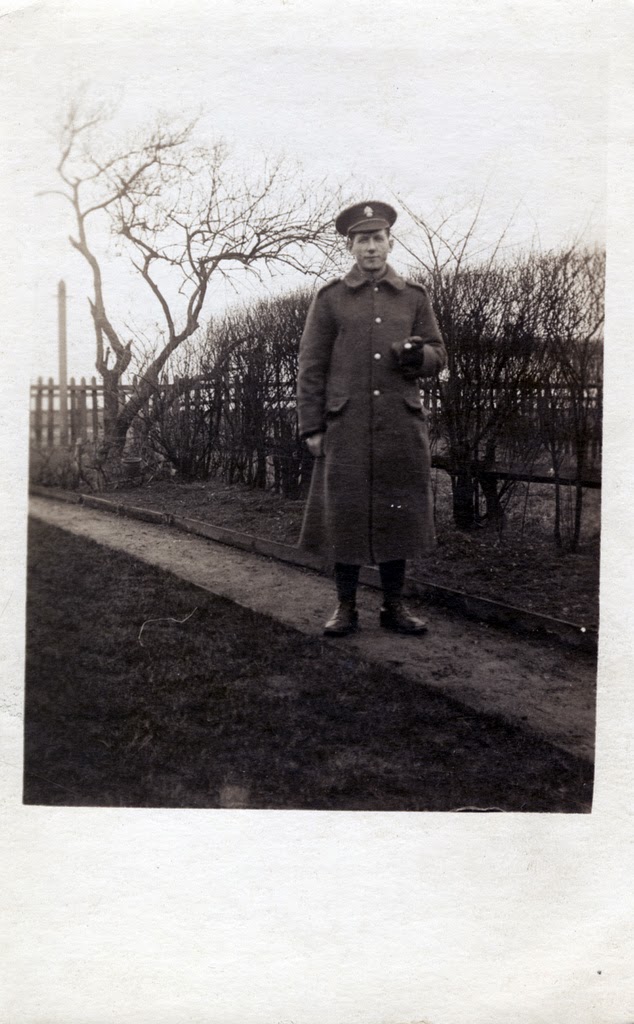Following on from my last entry I’ve been wondering whether an empathetic link between ourselves and those who fought and died in the First World War can – based on Paul Fussel’s quote regarding “moments of pastoral” (“if the opposite of war is peace, the opposite of experiencing moments of war is proposing moments of pastoral”) – be found in the idea of the garden.
Can the garden – that domestic, pastoral space – become a space of memory and, therefore, experience shared with those who died in the violent landscape of the Western Front?
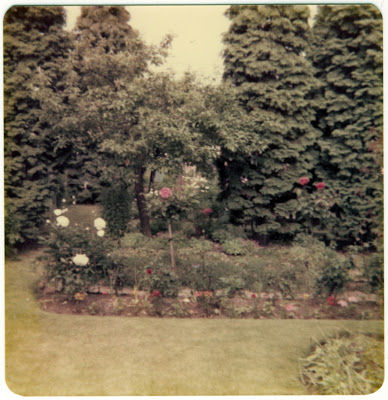 |
| My grandparents’ garden in Oxford in the late 1970s |
 |
| Trees at Birkenau |
(One might imagine that a consideration of non-existence might lead to empathy through a shared consideration of death, but as Jean Amery wrote:”Dying was omnipresent, death vanished from sight.”
With soldiers of the First World War it’s also impossible for us to empathise with what they experienced. We can empathise through being in the landscape of Ypres or The Somme – i.e. we can empathise through a shared experience of presentness, of, in effect, being alive – but the fact the landscape looks so different today makes this especially hard.
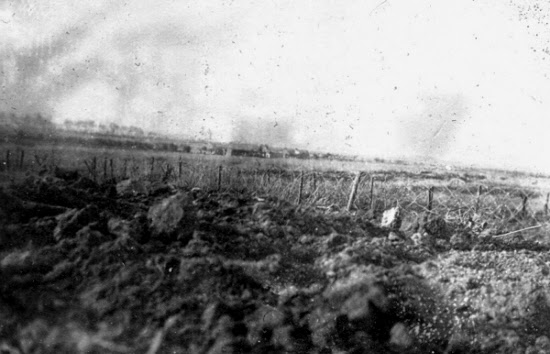 |
| Mouse Trap Farm c1915 – a place near where Jonah Rogers fell |
My Grandparent’s garden is as much a part of the past as the garden in which Jonah (above) is sitting. It’s almost as if the past becomes a single remembered landscape – a garden in which we can find those who lived and died long before we were born.
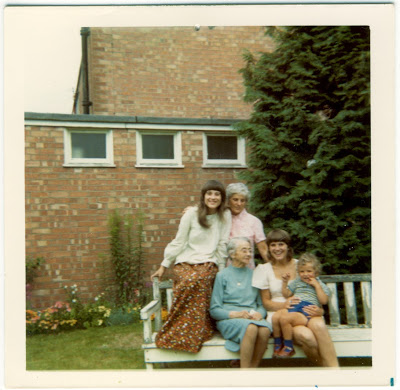 |
| Me as a small boy with my mum, nan, aunt and great-grandmother (born in 1878) |

